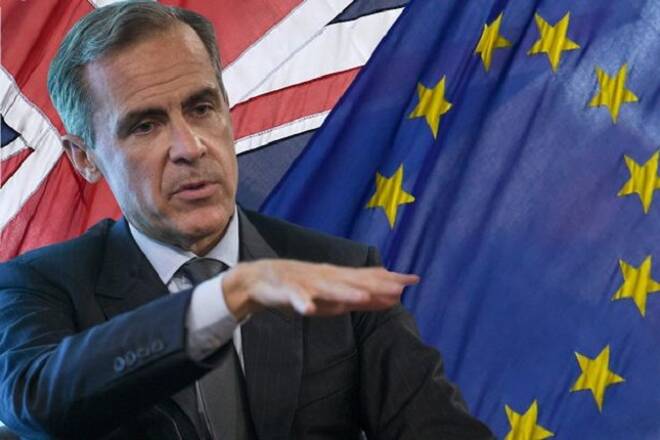Advertisement
Advertisement
Bank of England Cuts Rates to 0.25% & Increases Stimulus Program
By:
The Bank of England has decided to cut interest rates by 25 basis points down to 0.25%, the lowest in UK history, in response to a raft of negative data
The Bank of England has decided to cut interest rates by 25 basis points down to 0.25%, the lowest in UK history, in response to a raft of negative data released on the UK economy, after the decision to leave the European Union.
The bank’s Monetary Policy Committee voted unanimously in favour of the rate cut, in a reverse from voting 8-1 to hold rates at 0.5% last month, in what was then a surprise move.
Further stimulus measures to boost the UK economy post ‘Brexit’ included an anticipated expansion of the asset purchase scheme for UK government bonds of £60 billion, taking the total quantitative easing (QE) programme up to £435 billion, and the purchase of up to £10 billion of UK corporate bonds.
Additionally, the Term Funding Scheme (TFS) was launched, that will provide funding for banks at interest rates close to the bank rate
The bank’s summary read: “Following the United Kingdom’s vote to leave the European Union, the exchange rate has fallen and the outlook for growth in the short to medium term has weakened markedly.”
“The expansion of the Bank of England’s asset purchase programme for UK government bonds will impart monetary stimulus by lowering the yields on securities that are used to determine the cost of borrowing for households and businesses.”
In reaction, the pound has fallen down to GBP/USD 1.319 following the QE announcement, since the beginning of trading today GMT, the pound fell against the US dollar in anticipation of a rate change, the GBP/USD rate was down to $1.329 from $1.334
Many analysts, such as Markit who released PMI’s which showed unfavourable reading across many pivotal economic sectors in the UK including services, has said that a rate rise was a “foregone conclusion”.
Retail and Construction Industries Rise in Germany for July
The latest Markit PMI has revealed encouraging news for Germany’s retail and construction industries, as Europe’s strongest economy recorded positive figures in both sectors for July.
In retail, the index reached a score of 52, a climb from the 51.6 that was found in June, as the industry celebrated a rise in sales, according to the 200 respondents in the survey, additionally employment growth was sustained and companies increased their purchasing activity, which resulted in an accumulation in inventories.
The latest month on month increase was the sixth in a row for retail, with the pace of growth higher than last month, on an annual basis sales also grew, although the year on year index was the slowest that it has been in the past three months.
While the construction industry posted a PMI score of 51.6, up from a ten month low of 50.4 in June, although expansion was at a modest pace, but still marked 18 consecutive months of growth in construction, according to Markit.
Last month increases in construction were mainly supported by higher levels of house building, residential building output also accelerated but at a weaker rate since June, the survey results though did point to a decline in new business, with many survey respondents warning of a lack of demand in the industry.
So far today CET, the EUR/USD has been in reverse from the bullish performance from the euro compared to the greenback in the past two weeks, and is down to $1.112 from $1.122 yesterday.
This is following favourable data released in the US economy, as the ADP National Employment Report revealed that 179,000 private sector jobs had been created in July, exceeding expectations.
About the Author
Peter Tabernerauthor
Advertisement
